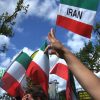Sudan has always been a trading and cultural bridge between Africa and the Arab world and, consequently, a land of great diversity –ethnic, cultural and religious–. The country has experienced a long internal conflict for around 50 years that only recently, in 2011, led to the independence of South Sudan. Despite the prospects for peace, fighting between the two parts soon broke out again and key issues relating to oil, territorial disputes, border demarcations and a high debt remain unresolved. The small steps forward that have been achieved –the announcement of the opening of four new crossing-points along their border and the resumption of oil production and exports in April– are insufficient to overcome the persisting mistrust between the two countries.
The independence of South Sudan has had a negative effect on the Sudanese economy, generating high inflation and rising food prices (when South Sudan seceded in 2011 it took 75% of Sudan’s oil wealth with it, although the export infrastructure remained in the North, while at the same time the deteriorating economy is also a direct and indirect consequence of the non-implementation of the peace agreements). Khartoum’s wish to balance its declining oil revenues has led the government to pursue a new investment policy that aims to remove all obstacles faced by foreign investors –such as US sanctions– and create a suitable atmosphere for attracting more capital.
Within this context, on 30 May the Elcano Royal Institute hosted a meeting in Madrid with Sudan’s Foreign Minister, Ali Ahmed Karti, who was accompanied by the country’s Investment Minister, Mustafa Osman Ismail. According to the two ministers, the door is being opened wide for foreign investors by the drafting of a new act designed to make investment far more attractive. Sudan has huge natural resources, including mineral wealth, such as gold, which is becoming a key commodity, offering opportunities that cannot be overlooked and that should be seen within the broader context of an emerging Africa.
Nevertheless, investors and investments –mainly from Europe– have the crucial requirement of stability. Although humanitarian crises are still besetting the provinces of Southern Kordofan and the Blue Nile, without forgetting Darfur, Minister Karti claims that Sudan is committed to working for peace with its Southern Sudanese neighbour and to achieving peace and reconciliation in the area.
The Sudanese government has embarked on an ambitious plan to seek new investments in order to improve its economy. This will not be easy. In the first place, it will be difficult to change the world’s perception of Sudan. A number of firm steps will have to be taken by the Sudanese government to make credible its determination to preserve a stable and peaceful environment within its own territory and with respect to South Sudan. However, the most recent news from Sudan are far from encouraging.



